Publications Library
Type
Topic
Language
Region
Country
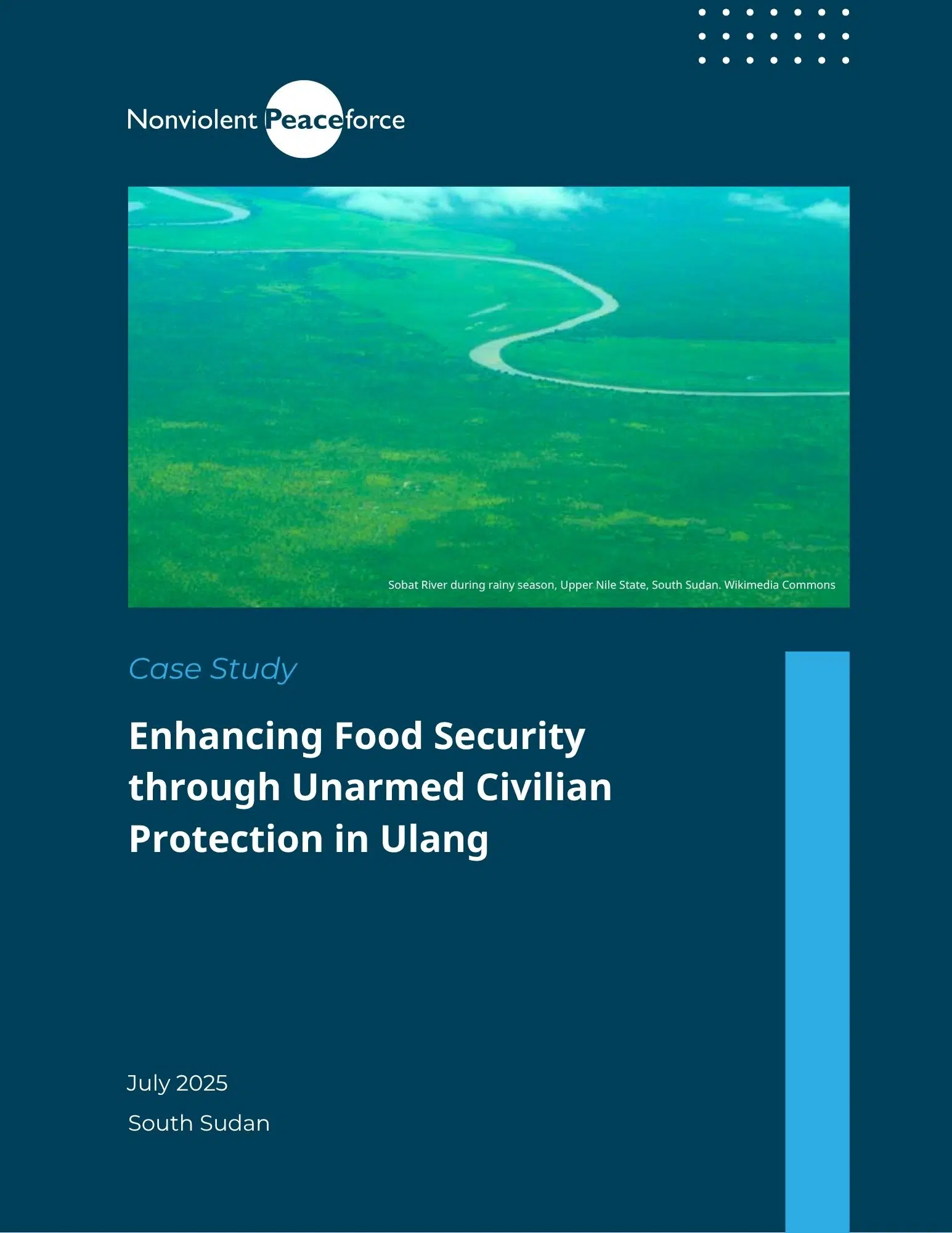
July 2025
Enhancing Food Security through Unarmed Civilian Protection in Ulang
Case Study
In Greater Ulang, an area with fertile land and accessible river water, folks avoid engaging in agricultural practices out of fear for their safety. Consequently, the protection issues arising from generalized insecurity perpetuate a chronic cycle of food insecurity that can extend beyond years and generations. NP has been working alongside communities to address these challenges in Greater Ulang.
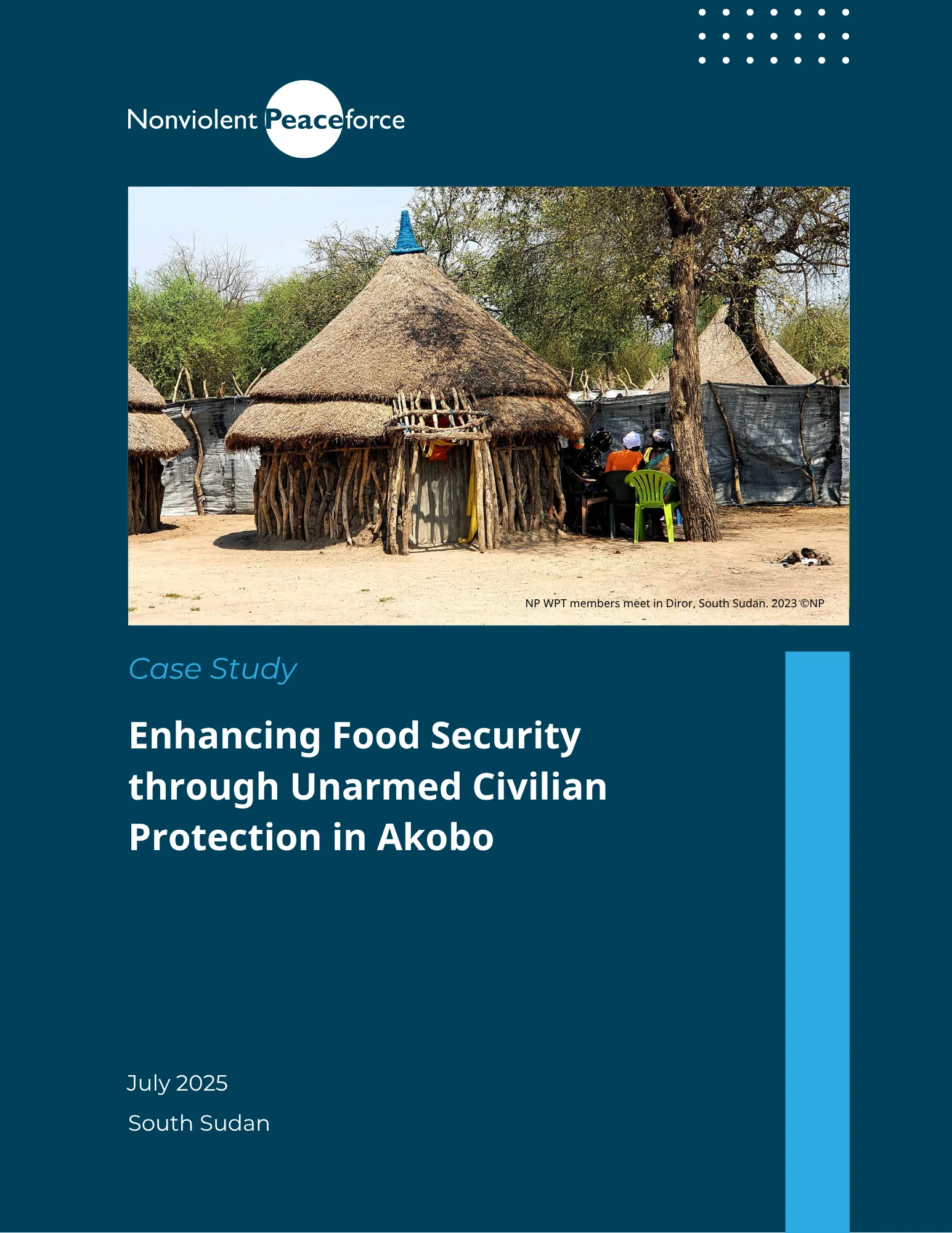
July 2025
Enhancing Food Security through Unarmed Civilian Protection in Akobo
Case Study
In Akobo County, the outbreak of conflict at a central food distribution site resulted in the complete suspension of the distribution site. Individuals, families, and communities uninvolved did not receive their food assistance as expected. Our staff facilitated a community security meeting in Diror to understand the status of the relationship between the Kaikuiny and Diror communities and identify if any strategies needed to be implemented to mitigate any potential violence during future planned food distributions.
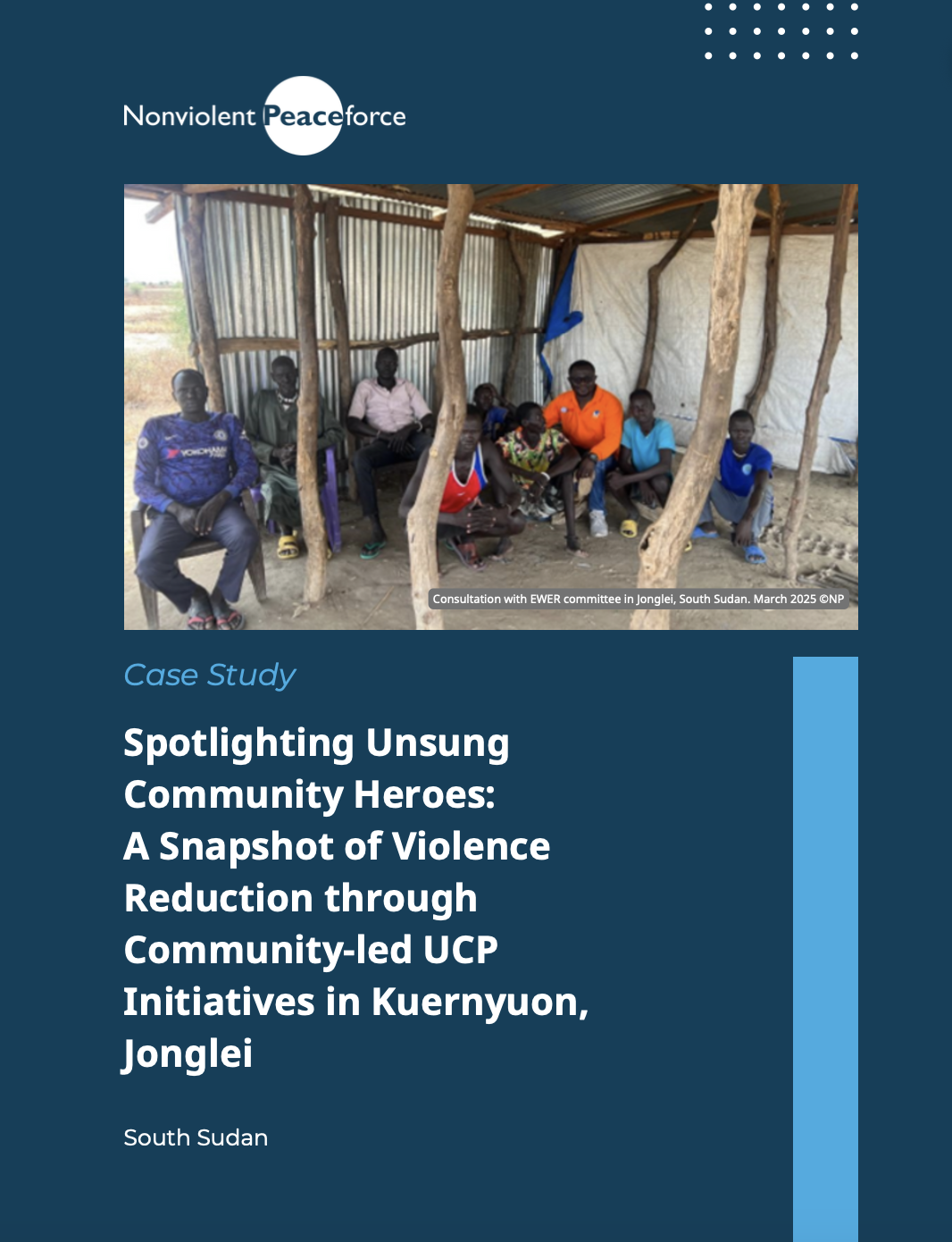
July 2025
Spotlighting Unsung Community Heroes: Violence Reduction through Community-led UCP Initiatives in Kuernyuon, Jonglei
Case Study
Through the leadership of local actors and the support of NP, the community of Kuernyuon in Buong Payam, Jonglei State, once plagued by child and women abductions and frequent cattle raids from neighboring communities, has begun a new chapter. Here's how they're using grassroots peacebuilding efforts to redefine safety and community protection.
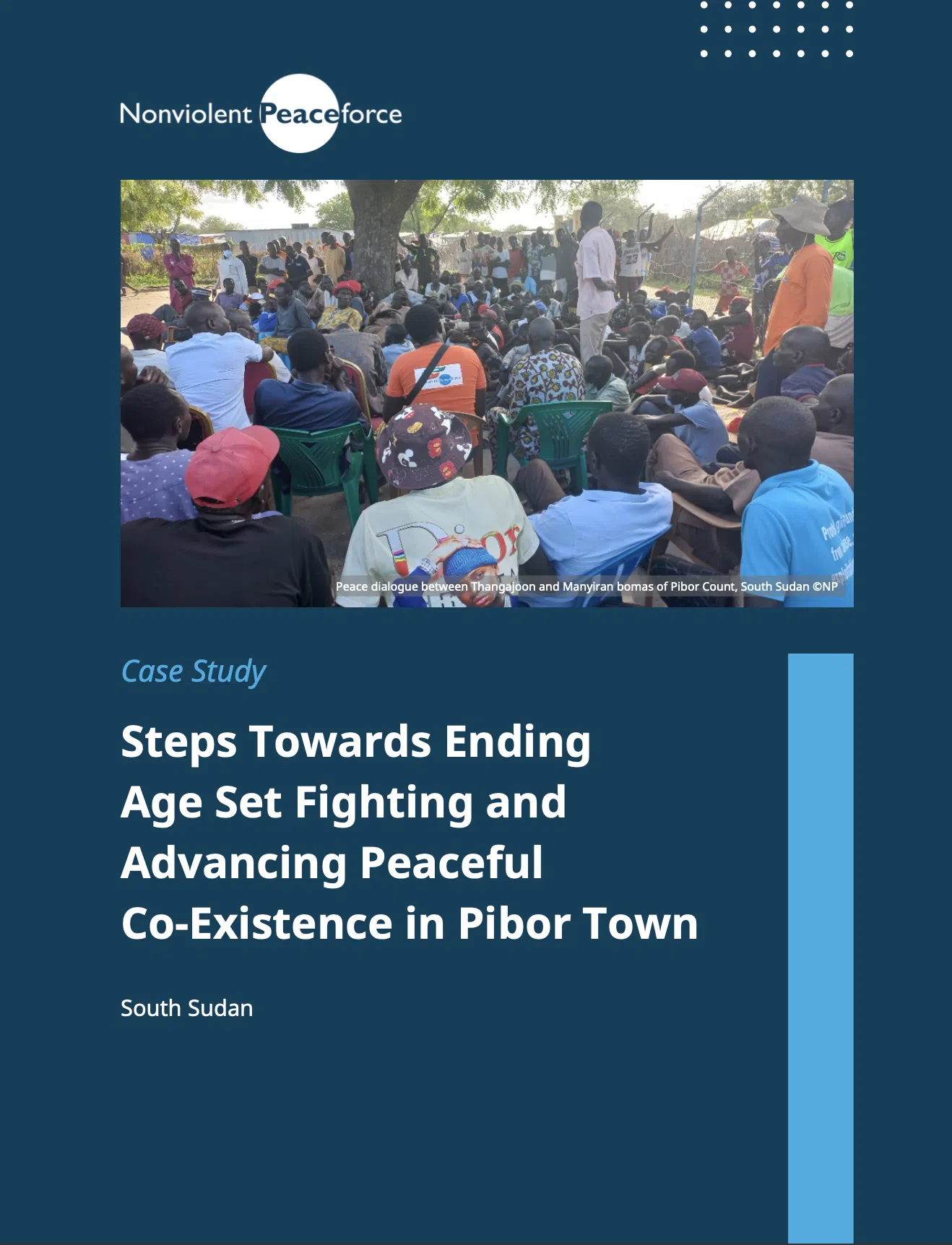
July 2025
Steps Towards Ending Age Set Fighting and Advancing Peaceful Co-Existence in Pibor Town
Case Study
Learn how NP is supporting Pibor Town as the town takes steps towards ending age set fighting and advancing peaceful co-existence.
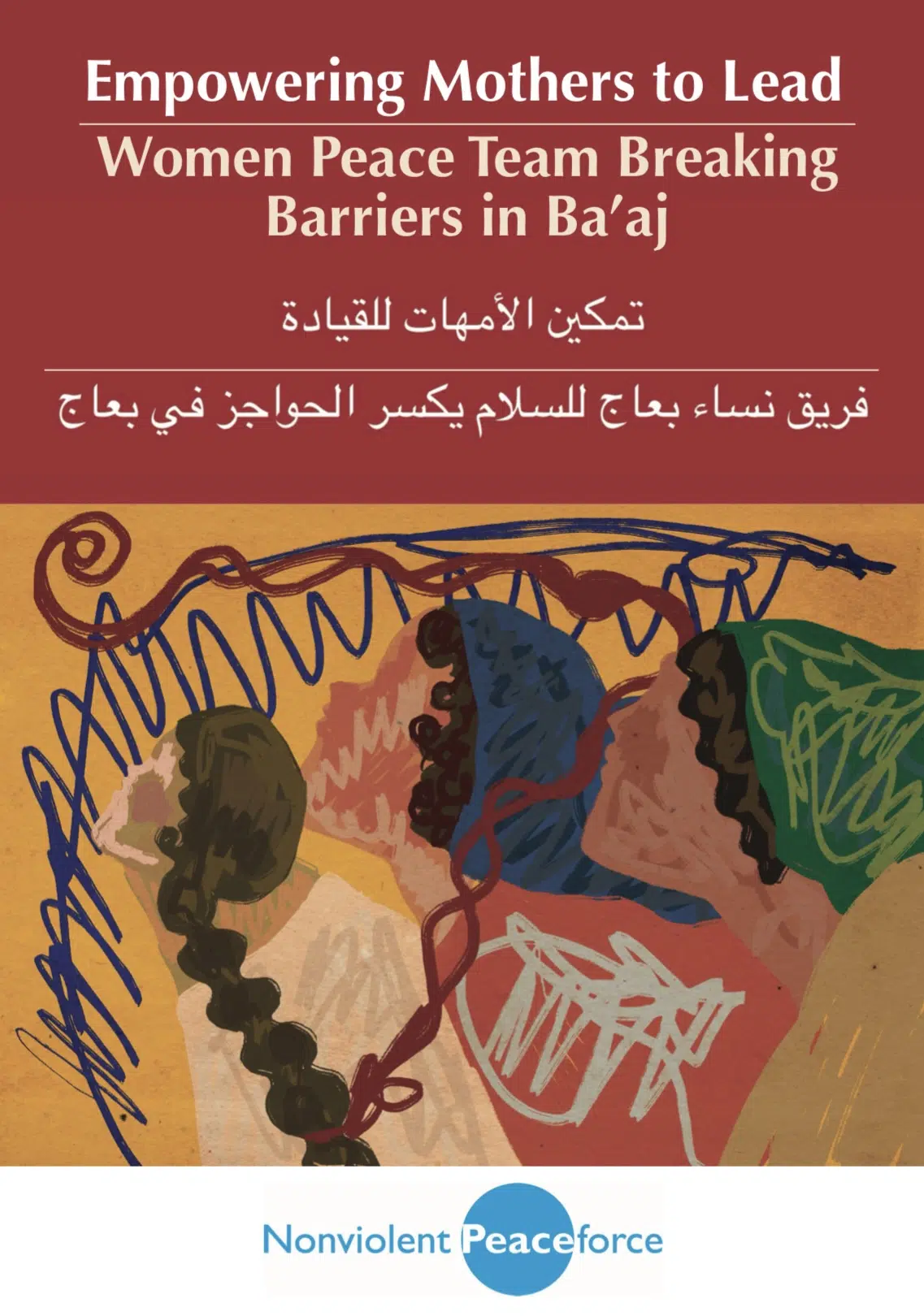
March 2025
Empowering Mothers to Lead: Women Peace Team Breaking Barriers in Ba’aj (Illustrated)
Case Study
In a community where women have long been excluded from decision-making, mothers are breaking barriers and leading a movement for change. What started as simple meetings between teachers and mothers has evolved into a powerful committee, ensuring girls' education and women’s voices are no longer overlooked. (With illustrations and translation in Arabic)
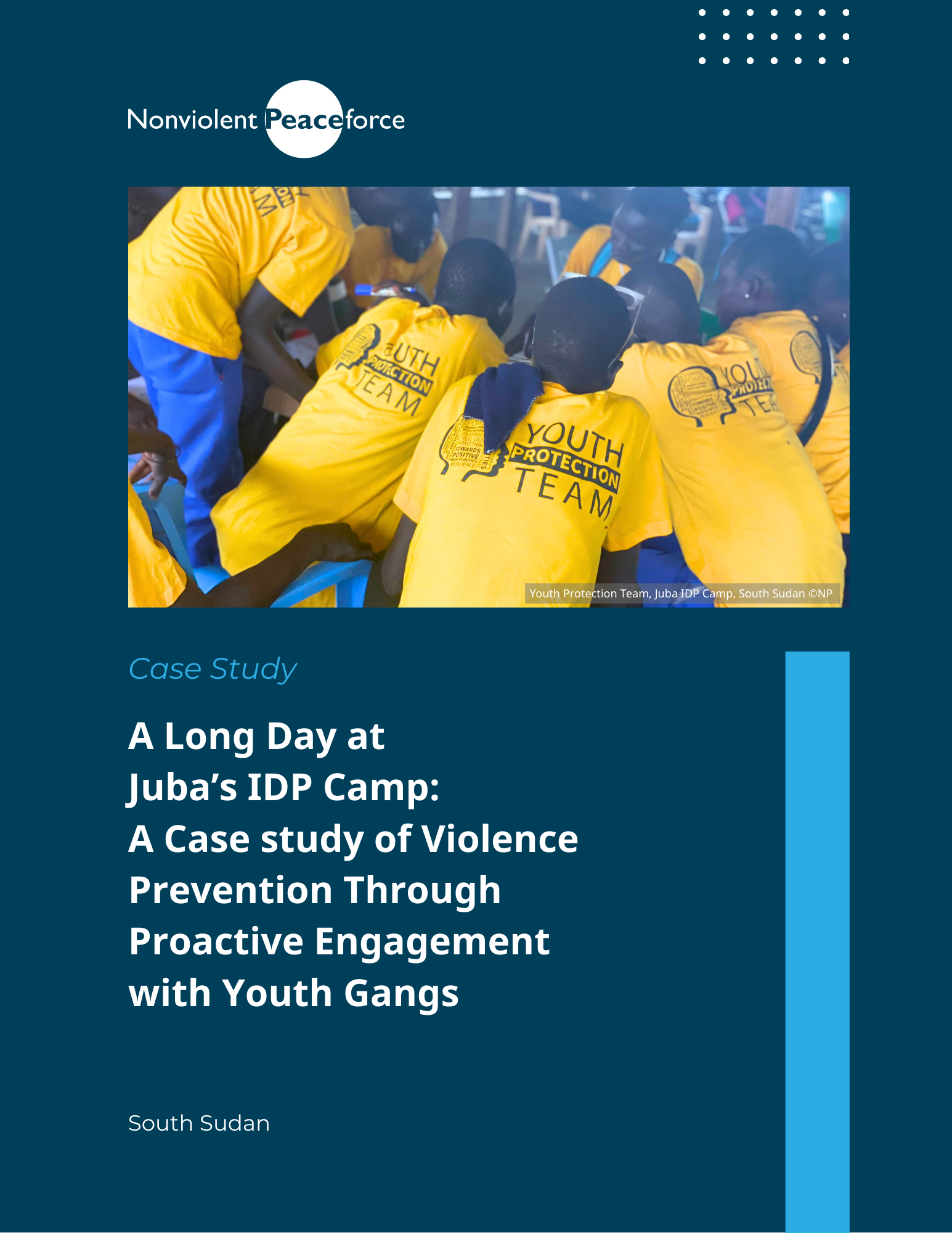
May 2025
A Long Day at Juba’s IDP Camp: A Case study of Violence Prevention Through Proactive Engagement with Youth Gangs
Case Study
Youth in Juba’s IDP camp helped prevent violence against civilians amid rising tensions. Members of the camp’s Youth Protection Teams, trained in nonviolence, drew on long-standing relationships to directly intervene and de-escalate the situation. Their actions prevented further violence and highlighted the impact of community-led protection and unarmed civilian strategies.
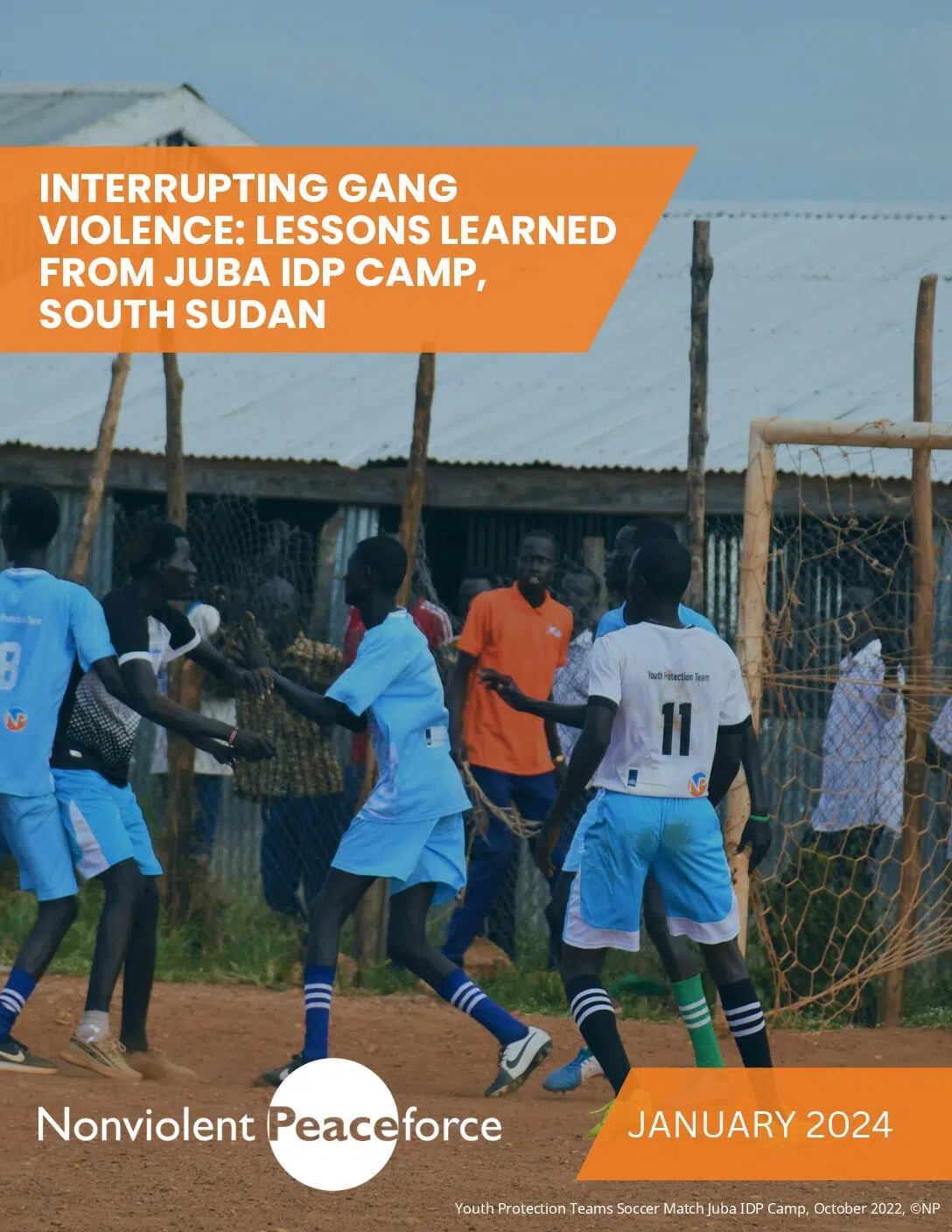
January 2024
Interrupting Gang Violence: Lessons Learned From Juba IDP Camp
Case Study
Intergroup and gang violence is a major concern for South Sudanese communities, particularly those who reside in internal displacement camps. Following the withdrawal of the UN Mission in South Sudan as security actors from sites since 2020, youth groups – which self-identify as gangs – have emerged in greater numbers and become a major safety concern for communities. Violence including physical attacks resulting in injury and death, rape and sexual violence, looting and other forms of harassment have increased as gangs have gained membership numbers and strength.

September 2023
Mandatory Evacuations of Civilians in Kherson Oblast: Emergency Response
Case Study
On 21st and 22nd of September, Nonviolent Peaceforce (NP) team facilitated civilian evacuations from Dar’ivka Hromada. On the 21st, NP received a call from a focal point in Mykil's'ke about two families in need of an evacuation following a terrifying night of constant and heavy shelling by RF. NP, in partnership with SylniBoVilni, a local volunteer collective, facilitated the evacuation.

January 2023
Mitigating tensions between community members and duty bearers
Case Study
A review of NP’s work in Hardan Village, Sinjar District in 2022: NP began engaging in Hardan in May 2022 to address growing tensions with the potential for further escalation within the community. Community members started sharing with NP that tensions mostly arose over the allocation of services, goods, and infrastructure, rooted in perceived and real power inequality between and within the communities. Aware that similar tensions had given rise to threats of violence in other areas in Sinjar District, NP began proactive engagement to de-escalate these situations and strengthen the capacity of community members to address protection concerns.

November 2022
Tarshana, Darfur
Case Study
Through close communication and analysis with the community, NP is implementing awareness raising activities on protection, GBV and peaceful coexistence, community protection trainings, and protective patrols, to respond to the challenges the Tarshana community faces, and to enhance the safety and security of at-risk communities in Tarshana while promoting nonviolent responses to conflict and enhance social cohesion.
